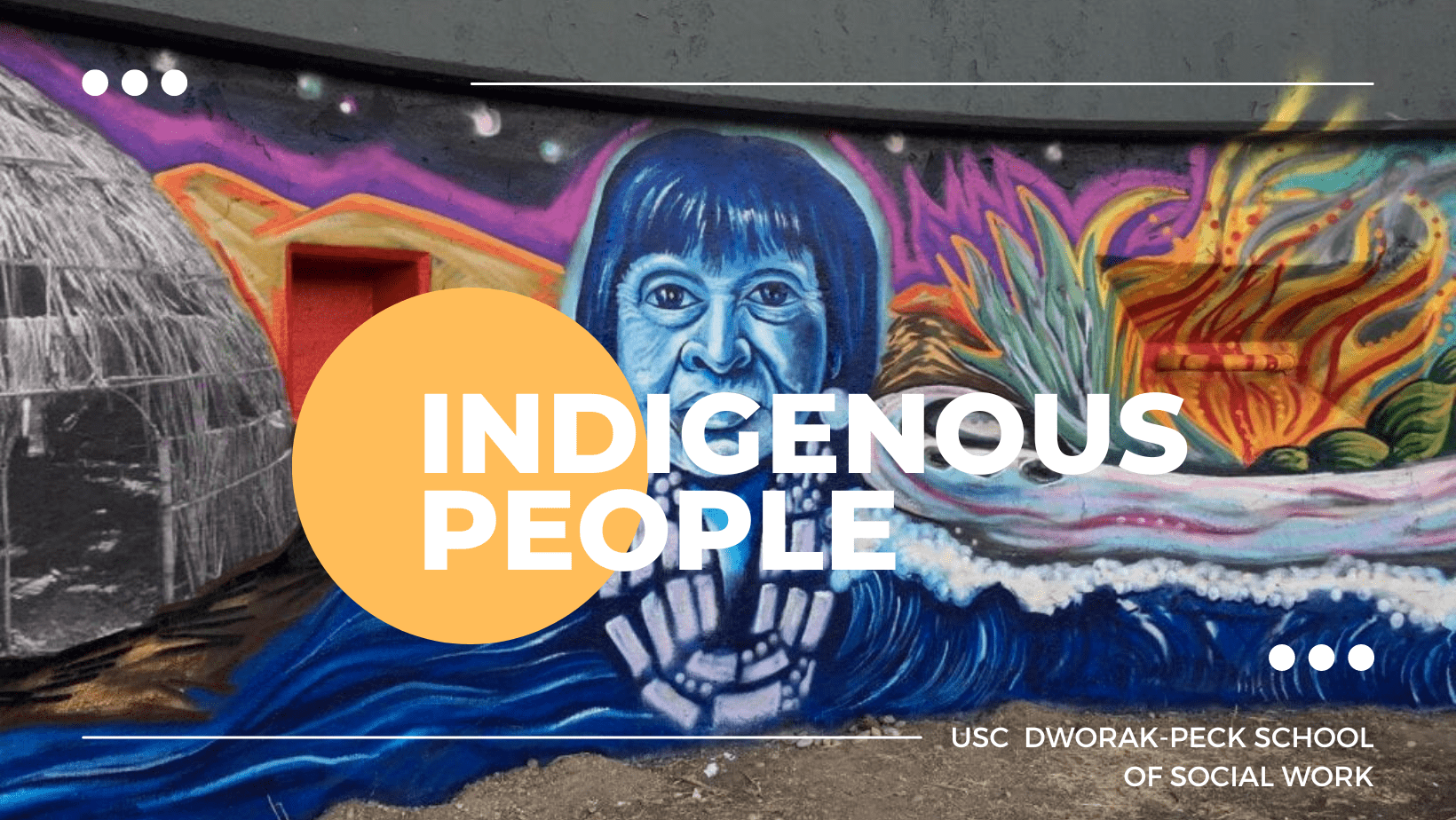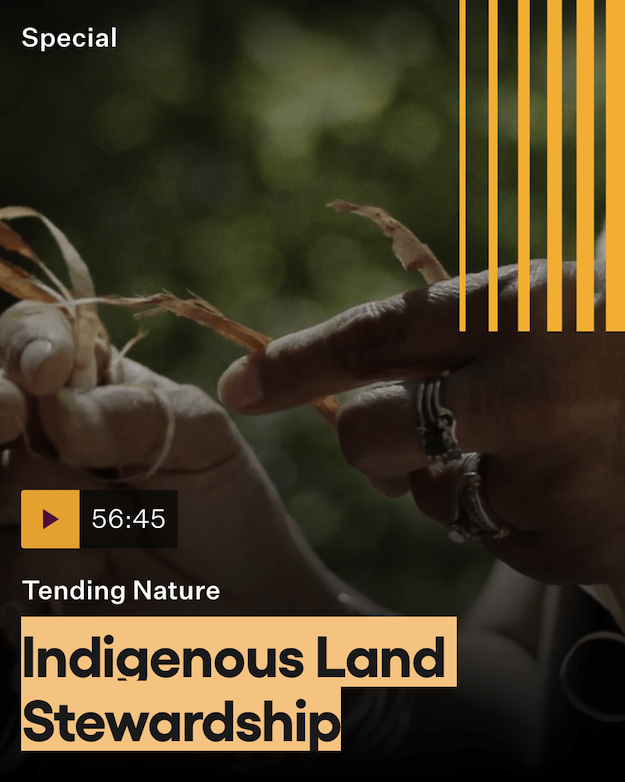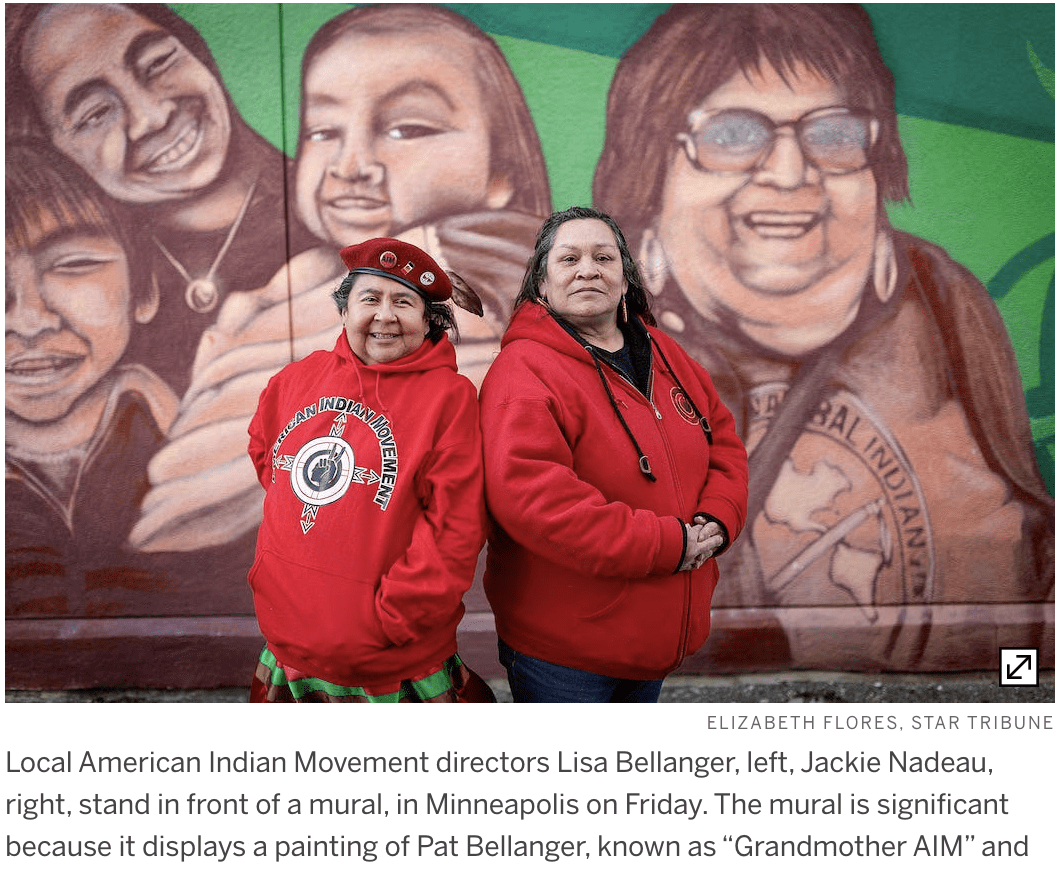Indigenous
50th anniversary of 71-day standoff was commemorated at Pine Ridge Indian Reservation on Feb. 24-27
California is home to more Native Americans than any other state in the United States. The City of Los Angeles holds the second largest percentage of Native Americans, and is home to three Native American Indian tribes that predate the establishment of California Missions: the Ventureño, Gabrieleño, and Fernandeño. Learn More
Ancestors Know Who We Are
Black-Indigenous women artists address race, gender, multiracial identity, and intergenerational knowledge.
Heart work: Training social workers to keep Native children home
| In 2021, Littlewolf and others at UMD launched a two-day training on the Indian Child Welfare Act that’s now required for all child welfare professionals across the state. Since it began, about 1,500 county and tribal social workers have gone through the training, which now gets an annual $1 million appropriation from the state. It’s the only program like it in the country. |
WATCH
USC SEMINAR
| Who produces the research we rely on? Who determines what is important to research, what topics deserve to be researched, and who researches them? This roundtable discussion from USC Visions and Voices addresses decolonizing research and the fraught relationship between Indigenous knowledge and scholars and the academic and cultural institutions that have often erased, co-opted, and excluded them. |
KCET: Indigenous Land Stewardship
How the US stole thousands of Native American children
Toward the end of the 19th century, the US took thousands of Native American children and enrolled them in off-reservation boarding schools, stripping them of their cultures and languages.
Reservation Dogs
From Co-Creators and Executive Producers Sterlin Harjo and Taika Waititi, Reservation Dogs is a half-hour comedy that follows the exploits of “Elora Danan” (Devery Jacobs), “Bear Smallhill” (D’Pharaoh Woon-A-Tai), “Willie Jack” (Paulina Alexis) and “Cheese” (Lane Factor), four Indigenous teenagers in rural Oklahoma.
PBS Shows Featuring Native Americans
NEWS
| Dr. Karina Walters Selected to Lead NIH Tribal Health Research Office National Institutes of Health The National Institutes of Health (NIH) have announced the selection of Karina L. Walters, PhD, MSW, an enrolled member of the Choctaw Nation of Oklahoma, as director of the NIH Tribal Health Research Office starting April 24, 2023. Dr. Walters’ wealth of experience and deep commitment to engaging tribal leadership in health research efforts makes her ideally suited for the position. Her commitment to community-based participatory research is evident in her demonstrated ability to sustain collaborations with diverse Native communities and conduct successful randomized clinical trials in tribal communities. |
Wounded Knee remembered: 1973 occupation led to resurgence of Native voice
Many Winters Gathering of EldersThe MWGOE was created on October 12, 1992 – in opposition to the quincentennial celebrations of Columbus Day – to reclaim traditional spaces and dismantle the myth of Manifest Destiny, to heal from historical and intergenerational trauma. |
Long Beach City commission calls for name change of Lincoln Park
A city commission voted Wednesday to officially call for the renaming of Lincoln Park. Guided by the city’s Framework for Reconciliation, which the City Council adopted in June 2020 as a way of beginning to eliminate racism in Long Beach, the Equity and Human Relations Commission supported renaming Lincoln Park and removing both the Lincoln statue and the 13-foot penny sculpture from the park, according to a draft one-page letter released Tuesday. Read more
Update: Coalition continues campaign to rename Lincoln Park in Downtown Long Beach
SUPPORT
American Indian Changing Spirits
American Indian Changing Spirits, Mission is to provide culturally relevant, community-based outreach and education, with evidence-based recovery programing focused on American Indians who suffer from drug & alcohol addiction and/or dependency.
Native Land Information System
The Native Lands Advocacy Project provides direct support to Native American Tribes and native organizations in their efforts to recover, protect, defend their lands and resources. On this page we have highlighted some of these initiatives.
The Native American Rights Fund holds governments accountable. They fight to protect Native American rights, resources, and lifeways through litigation, legal advocacy, and legal expertise.
A presentation on the potential benefits of providing culturally competent services for American Indians/Alaska Natives with mental health and substance use disorders.
The Native and Strong Lifeline provides connection and culturally specific care to callers in crisis in Washington.
Services for Native Americans (OAA Title VI)
ACL funds programs that support American Indians, Alaska Natives and Native Hawaiians in the areas of nutrition, supportive services for older adults, and caregiver services. The nutrition and supportive services grants include congregate and home-delivered meals, information and referral, transportation, personal care, chores, health promotion and disease prevention, and other supportive services. The caregiver services grants include assisting families in caring for older relatives with chronic illness or disability, and grandparents caring for grandchildren
LEARN MORE
Native American Ownership and Governance of Natural Resources
• • •
The Handbook of Federal Indian Law provides an overview of the foundational laws, regulations, and court cases that govern federal Native American law. The Department of the Interior published this handbook in 1942.
• • •
The United States Government’s Relationship with Native Americans
A brief overview of relations between Native Americans and the United States Government.
• • •
Currently, 573 sovereign tribal nations (variously called tribes, nations, bands, pueblos, communities, and Native villages) have a formal nation-to-nation relationship with the US government. These tribal governments are legally defined as “federally recognized tribes.” Two-hundred-and-twenty-nine of these tribal nations are located in Alaska; the remaining tribes are located in 35 other states. In total, tribal governments exercise jurisdiction over lands that would make Indian Country the fourth largest state in the nation
• • •
Indian Affairs maintains government-to-government relationships with Indian tribes, and facilitates support for tribal people and tribal governments. Indian Affairs provides services directly or through contracts, grants, or compacts to 574 Federally recognized tribes with a service population of approximately 2.5 million American Indian and Alaska Natives.
• • •
Learn more about historic days in November that are important to Native Americans
US DEPARTMENT OF DEFENSE HONORS NATIVE AMERICANS FOR HERITAGE MONTH
About Native American Heritage month by the National Congress of American Indians
USC Celebrates Native American Heritage Month
30 Stories for 30 Days of Native American and Alaska Native Heritage Month
We are celebrating Native American and Alaska Native Heritage Month by devoting more time to listening to the many creative people of Native American and Alaska Native heritage who carry on Indigenous traditions in a modern world. Each day in November, we are highlighting an individual or group who are telling their cultural stories via myriad different ways, from fashion to film to cuisine. Join us as we explore an Indigenous story each day this month.



